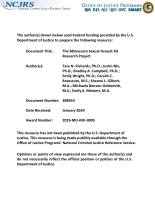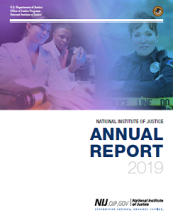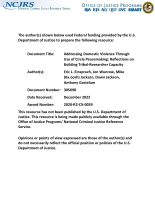NIJ’s Role in Strengthening the ME-Coroner System
Medicolegal death investigators serve a fundamental role for public safety and ensuring justice by conducting death scene investigations and providing investigation services for suspected homicides and violent deaths, sudden and unexpected deaths, and deaths due to suspicious circumstances, as well as deaths related to drugs, drug overdoses, terrorism, and mass fatality incidents.
This webinar was presented by the NIJ Forensic Technology Center of Excellence in July 2018.
See the YouTube Terms of Service and Google Privacy Policy







